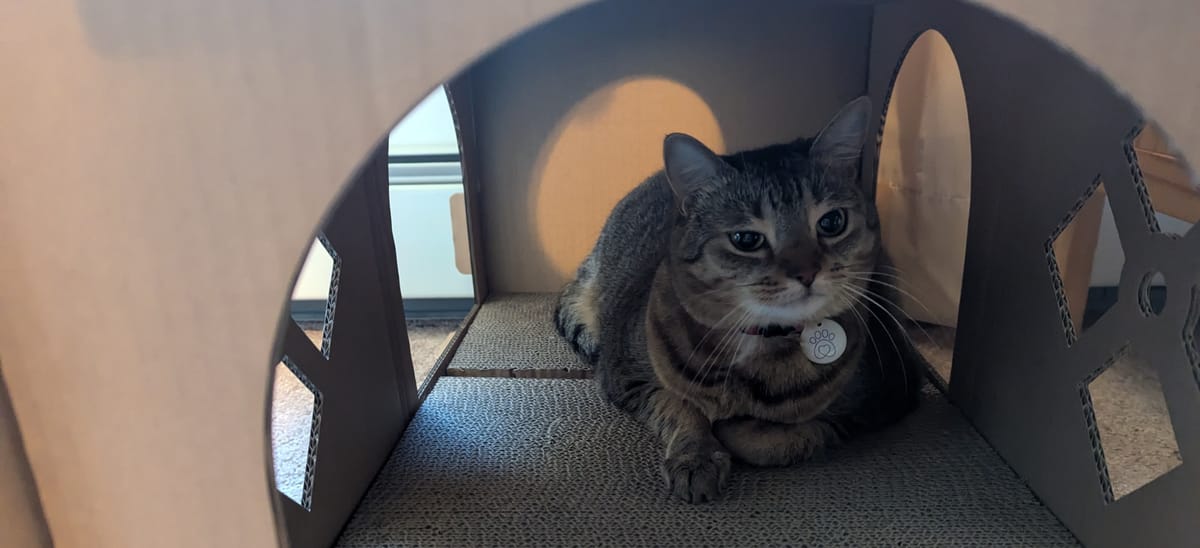Hey did you know solo ttrpgs are a thing?
Looking for a new hobby to keep you off social media? Give solo ttrpgs a try.

I've had a bit of time off work recently. Which, on one hand has been nice. But on the other hand, the lack of structure in my day plus it being winter (plus the state of the world) means it would be quite easy to find myself spending all day doom-scrolling. Thus, the number of blog posts you've seen from me recently. Including one about, generally, strategies to prevent that.
One thing I didn't mention in that other post - but have found fun and useful - has been getting back into solo tabletop role-playing games ("Solo TTRPGs"). It's a nice way to break away from screens for a bit, or at least to provide a more structured and engaging way to interact with screens while still kind of moving at my own pace. And as opposed to a video game or something (which I've also been playing!) it's easier to find opportunities to take breaks or wrap up and move on to something else.
Whether you've played traditional TTRPGs like D&D before or not, solo games come in many shapes and sizes and can be a great way to unplug for a bit, without all of the overhead of finding a group and scheduling a session.
Let's go over some of the general "types" of solo TTRPGs and a few recommendations to get you started.
Journaling/Storytelling Games
Journaling games typically live at the lower end of the "complexity and preparation" spectrums, though as always there are exceptions.
These games essentially boil down to glorified writing prompts (but not in a bad way). The rules will offer you a setting, an objective, and a way to generate your prompts (often injecting a bit of randomness along the way). Then you're left to respond to the prompt in whatever way you see fit. Typically that will be writing a "journal entry" of some kind. Written narrative prose, quick bullet point summaries, audio recordings, drawings, or just sitting back and imagining.
Journaling games are a great entrypoint into solo TTRPGs because you don't typically need to learn a bunch of rules to get started - read about the setting and objectives, generate a prompt, and get writing.
Here are a few assorted games I can recommend:
- Alone Among the Stars - This is one of the simplest journaling games I've played. All you need is a deck of playing cards and a 6-sided die (or a website to generate them for you). You use the die and cards to generate little moments and discoveries you happen upon while doing a bit of planet-hopping. There are no threats or conflict (unless you imagine them). I find it to be a relaxing visualization exercise. You can also find an online version to reduce friction even further.
- Long Haul 1983 - This is the game that got me started with journaling games. To excerpt its own description: "You play a long-haul truck driver trying to make their way home. Every day, you’ll hit the road, navigating treacherous highways, fleeing from menacing threats, and dealing with the psychological impacts of isolation." This has more structure and peril than Alone Among the Stars, though it once again boils down to using playing cards and dice to generate prompts that you react to. These entries are intended to be answering machine messages you're leaving for someone as you make your way back home through a deserted world, pursued by a threat.
- The Wretched - Another "use dice and cards to generate prompts" game (with the addition of a Jenga tower). This time, playing as the lone survivor of a disaster aboard a spaceship, you must keep your ship in working order while keeping away from a threat still on-board and fixing your distress beacon so you can call for rescue. Like Long Haul, this is another kinda-dark theme. You can find other games using this same "wretched & alone" system, but as the name suggests they all tend to have dark themes.
- Gentleman Bandit - Here we find again a "dice and cards" game, but with a twist. In Gentleman Bandit, you assume the role of, well, a gentleman bandit who leaves 13-line poems at the scene of his crimes. Pull cards to generate "microprompts" for each line of your poem and optionally role a die to generate a poetic device such as a rhyme scheme or meter to impose. Otherwise, breathe in the setting and put the words together however you see fit.
Narrative and "rules-lite" Games
If you've never played a TTRPG before - or if you've only played one of the major names - you may have some ideas about these games. Lots of dice, lots of math, battle on hex grids, etc, etc. But there are tons of games available that focus a little more directly on the narrative and end up a little more "rules-lite."
This is the sweet-spot for me.
Narrative-focused TTRPGs are not exclusively solo games. There are a number of common game systems used to build these sorts of games for solo, cooperative, or group play. Or some games use their own custom systems. These sorts of games will typical focus on character-building and generating situations to tell compelling stories with those characters rather than the numbers and math you'll find in "crunchier" games. There is a sliding scale between narrative games and more "typical" TTRPGs that we'll talk about in a minute where I'm going to get a little creative for which games I put in which section.
- Colostle - I almost even put this game under the journaling section, because it does sort of ride the line in some ways (our friends the playing cards are back), but I put it here simply because it is more complex than most journaling games. In Colostle you are an adventurer exploring a world-sized castle, hunting treasure, fighting dangerous enemies, and making your way up to the roof of the castle to learn about the nature of the world. This game offers a compelling setting with lots to do while still mostly running off a deck of cards.
- Starforged - This one is my personal favorite. Starforged offers a fully-featured TTRPG experience that supports solo, co-op, and guided play. The narrative-focused rule system offers a low-friction way to keep the story moving, even when things aren't necessarily going your way. And the generators, random tables, and "oracles" help you to guide your story and inject randomness even in the absence of a traditional games master. The gameplay loop is compelling and offers you tons of momentum to keep things moving. Starforged takes place in a flexible interstellar sci-fi setting, but also offers the Sundered Isles supplement for high-seas swashbuckling. The community is very involved and has built plenty of tools to help play, like Stargazer which allows you to play entirely from your browser.
"OSR" (old-school revival) Games
Old School Revival (or Renaissance or just Rules) games are - in some ways - just the opposite of Narrative games. Not that OSR games have no narrative or can't tell a story, but their mechanics are much more front-and-center than in other systems.
They're typically a lot "crunchier" with more dice rolls, skill checks, combat grids, inventory tracking, and stuff like that. The sort of stuff you might associate with D&D - especially older editions of the game.
Just like narrative games, OSR games can support solo, co-op, or guided play. But we're gonna focus on solo. As with the narrative games above, the important part here for solo play is that the games offer a sufficient set of random tables, prompts, and "oracle" tools to help build the world and inject randomness in the absence of a GM.
Unfortunately, I don't have a ton of experience with these sorts of games so I don't have a ton of games to pull from here. Indeed both games I'm going to mention are from the same team - Blackoath Entertainment. But there are plenty more options out there.
- Across a Thousand Dead Worlds - I love this one. Hmm, maybe I'm just a sci-fi guy. ATDW has you exploring and scavenging ancient alien ruins, underequipped and overstressed risking your life for a meager paycheck. ATDW does a good job of getting out of your way and providing good narrative momentum when you're exploring while still bringing a lot of tactics and crunch to the brutal combat system. ATDW also offers co-op play if you've got a bunch of Lethal Company friends you want to bring out of video games and into TTRPGs.
- Under Ashen Skies - Using the same system from ATDW, Under Ashen Skies sees you waking up alone without any memories in the decaying town of Riverside. Scavenge for supplies, fight demonic monsters, and meet other people just as lost as you. Oh, and prepare for The Devouring. If we're doing video game setting comparisons again, think Silent Hill.
Solo Rules and Oracles for other Systems
If you already play a traditional TTRPG, you may not care to learn another one - you may already have one you like.
Luckily, creative and enterprising individuals have created tons to of resources to let you automate most or all GM/DM activities so you can play nearly any rules system solo.
- Mythic GM Emulator - Mythic GME is a toolkit for running almost any TTRPG system solo. It offers tons of tables and charts and tools for injecting randomness, answering questions, running scenes, and telling stories.
- Books of Random Tables - There are tons of supplements out there with random generation tables of nearly any system you can imagine. It won't turn a guided system into a solo system itself, but it never hurts to have a few of these hanging around to help you generate things.
- Alone in the Dark - Blades in the Dark is an excellent narrative system made for guided play. Alone in the Dark offers rule tweaks, tables, and oracles for solo play. But these sorts of solo supplements are available for lots of systems, so if you have a favorite system I haven't mentioned here, have a quick look around.
Wrap Up
Mostly I just wanted to spread that word that solo TTRPGs exist. And across a broad spectrum of complexities, themes, and systems.
If you're looking for a new hobby or activity to pick up to get you off of social media, maybe one of these games is worth a look.
By the way, there are literally thousands of these games. So if you like the idea but think I have bad taste in games give a search of drivethrurpg or itchio to find something that speaks to you. Many of these games are cheap or free, but keep in mind that most of these are made by independent artists so when you see a "pay what you want" don't be afraid to throw them a couple bucks.
Now I just need to find the energy and inspiration to complete my own solo TTRPG that came to me in a dream over a year ago.



![A poorly-drawn cartoon computer with a happy face on the monitor stands next to text: "Don't say tariffs [x4]...oops"](/content/images/size/w600/2025/04/dontsaytariffs.png)

